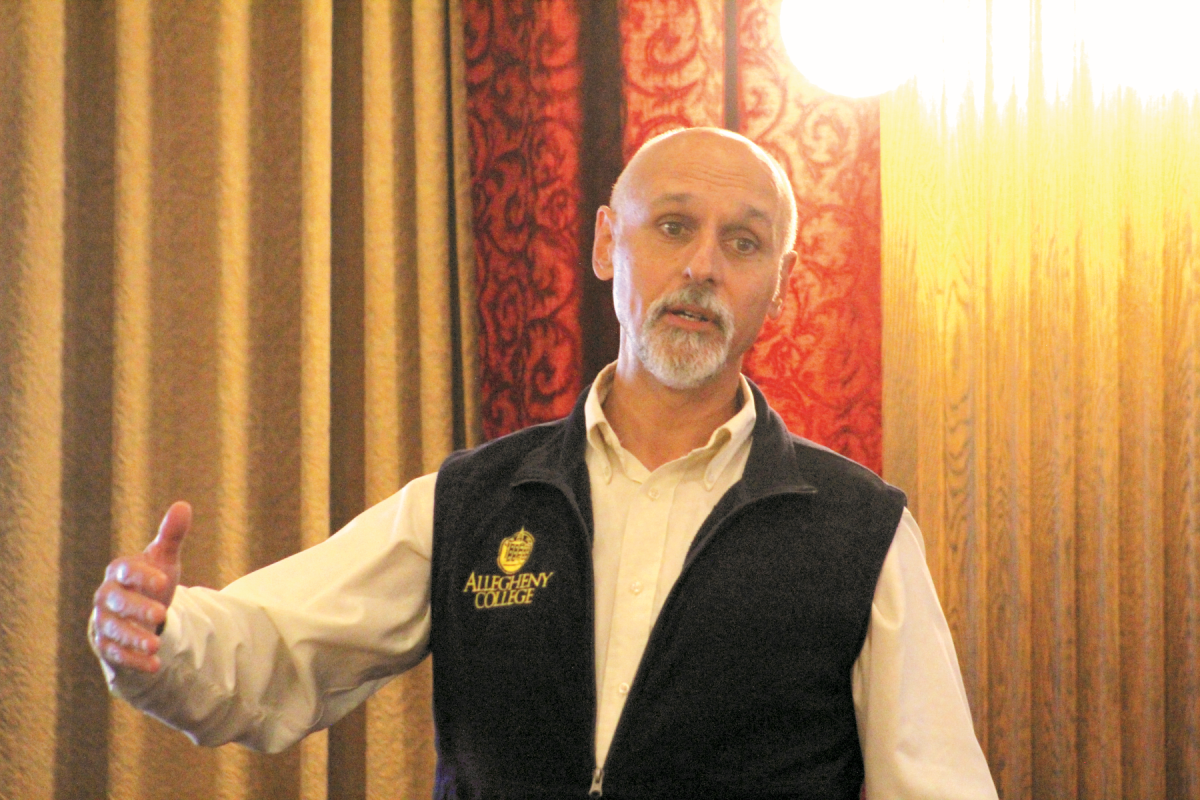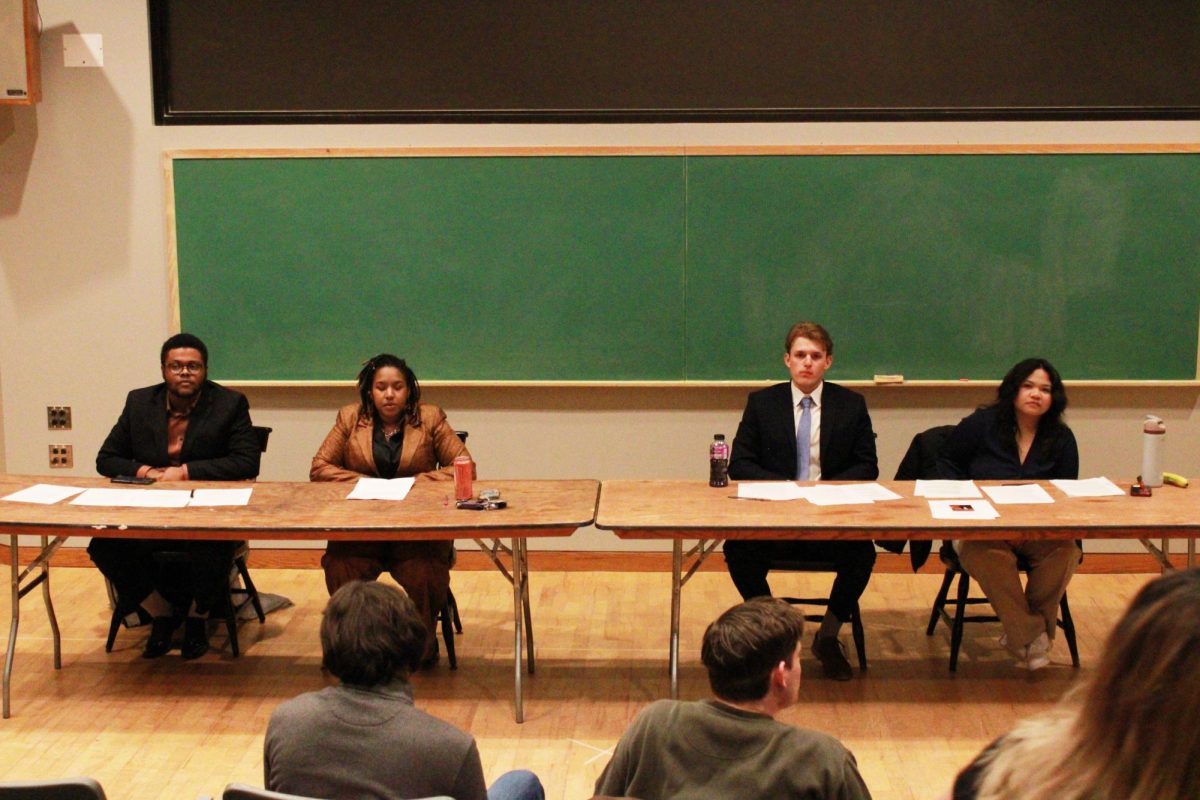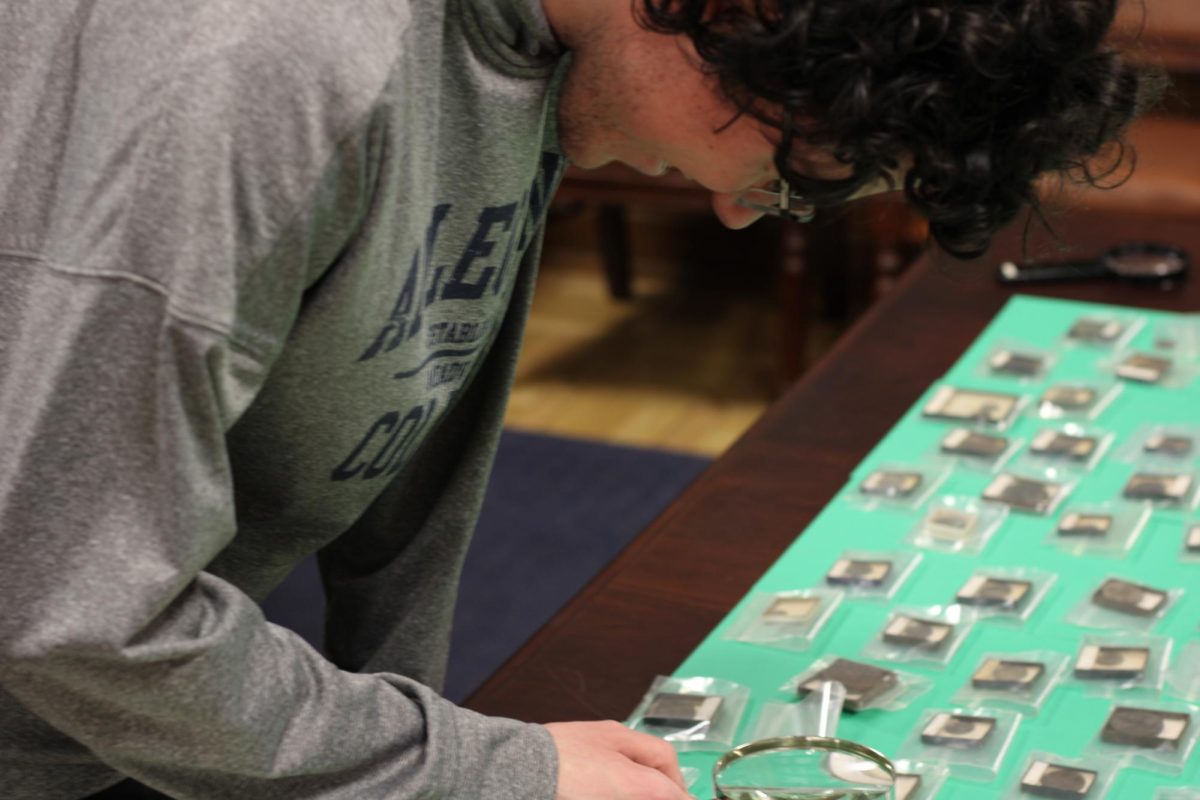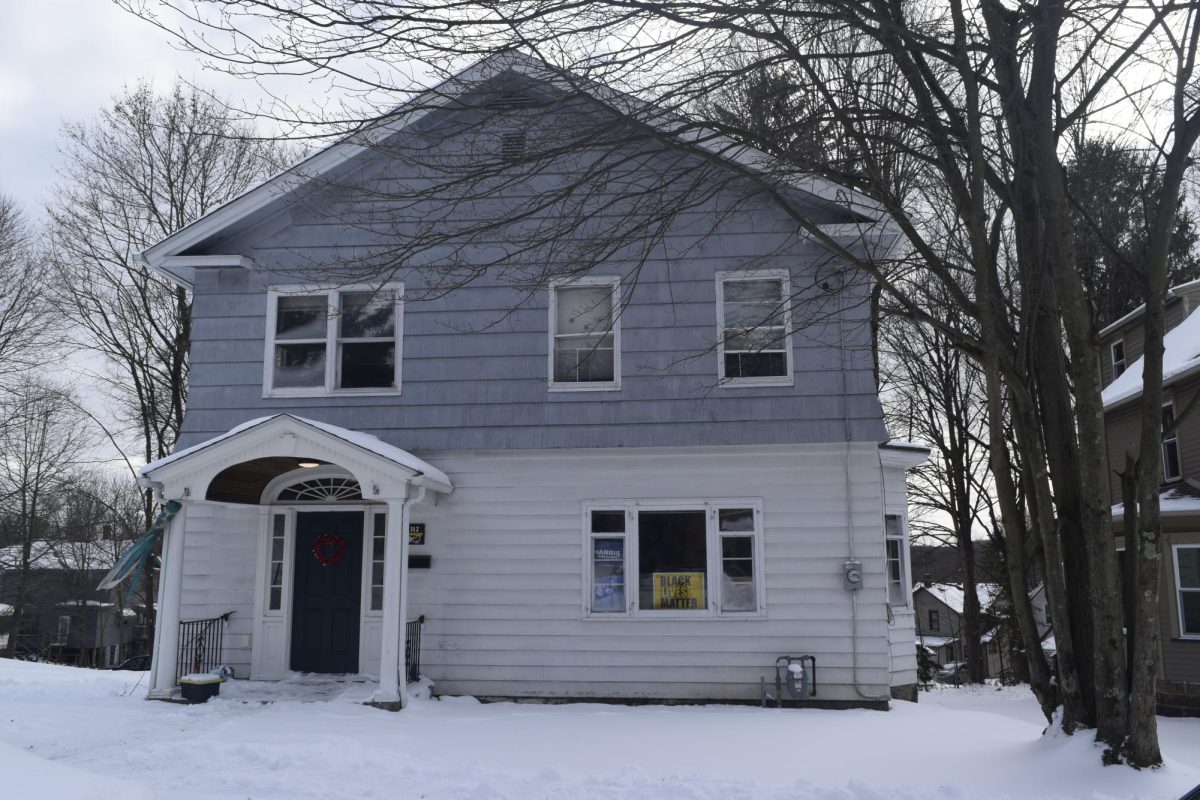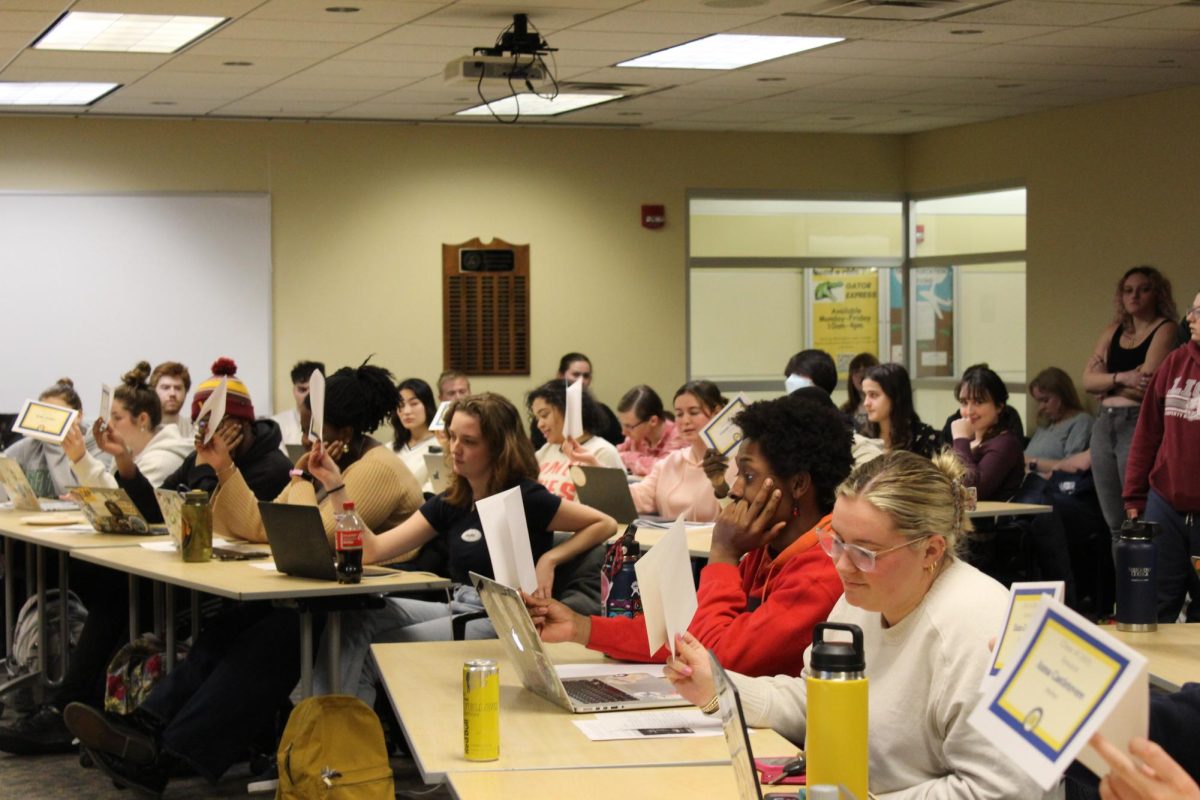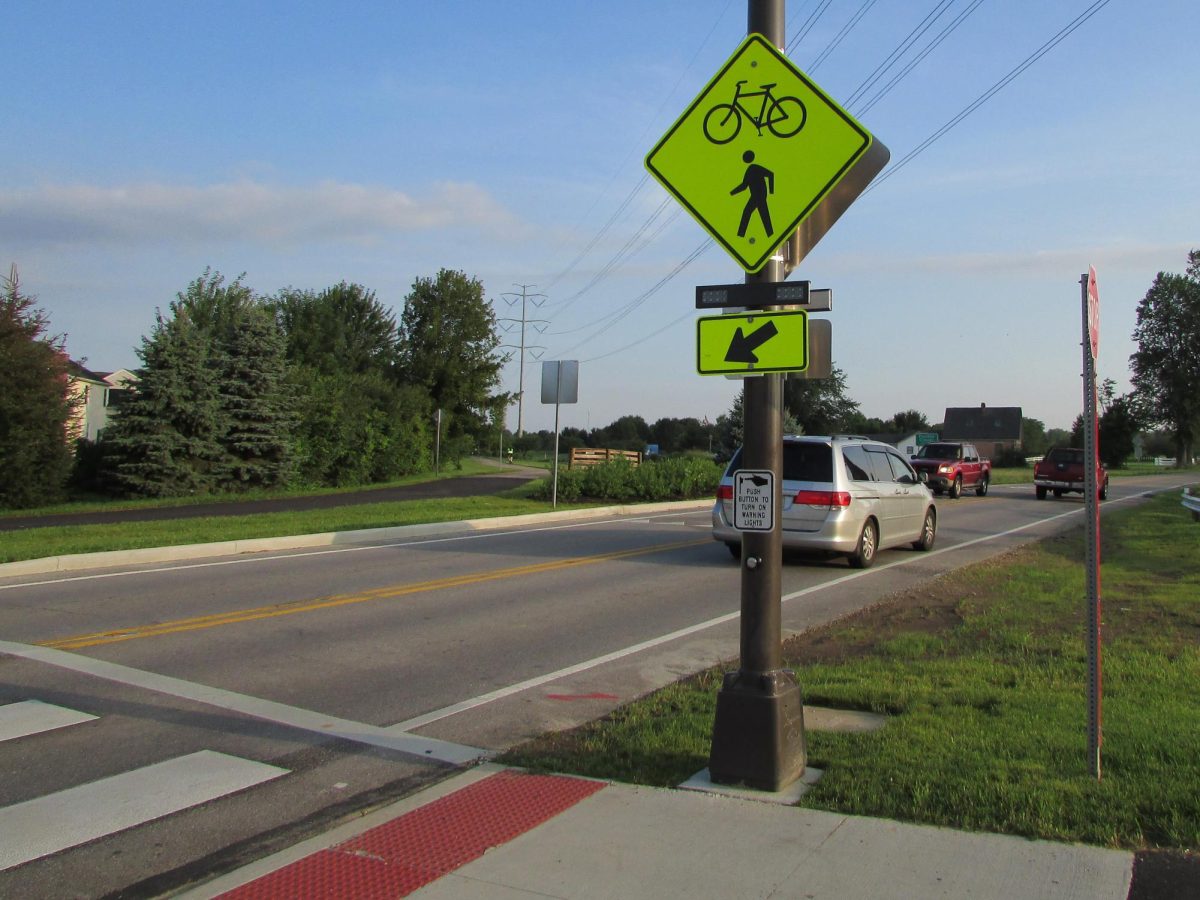The Allegheny Student Government kicked off their school year Tuesday evening with a presentation from the college president and a discussion on the future of Allegheny— though there were few students in attendance in the Tillotson room to hear his message.
President Ron Cole, ’87, updated ASG on the college’s strategic planning process, which began in late March to help plot the next decade of Allegheny’s development. As students arrived on campus last month, the strategic planning steering committee released a preliminary plan to students and the wider campus community for public feedback
“I can’t stress enough how important it is to me that this plan represents this campus community, which broadly speaking also includes our alumni,” Cole said. “A strategic plan, in my view, can’t be effective being done with a small number of people trying to shape the future of an institution that includes thousands.”
Cole also outlined the basics of the new plan, which focuses on five goals:
1. Academic excellence & strong outcomes for graduates
2. Vibrant and inclusive campus (student and employee experience)
3. Expand the reach of Allegheny (broader range of students)
4. Be part of and serve the greater Meadville region
5. Operational and financial sustainability
These goals and the strategies to achieve them are what Cole is seeking feedback on. Once the broader aims and pathways are defined, he said the planning process will shift to finding the day-to-day tactics of those pathways.
Q&A
After walking through the overarching ideals of the plan, he took questions from the handful of constituent students who were in attendance. Among them was Andrew Strobel, ’24, who asked what the college’s plans were in relation to investing and developing academic buildings. Strobel, an economics student, specifically asked about the Center for Business and Economics.
“I want to be careful about making promises that we don’t have definitive answers on,” Cole replied.
Cole did say that there were “significant gifts” in the works, and that renovations were being considered for Quigley Hall, the home of the business and economics and political science departments. He added that the college was also considering investments in Shafer Auditorium and the performing arts, as well as turning Reis Hall into a home for the Allegheny Lab for Innovation and Creativity.
“These are possibilities that we want to invest in,” he said.
Members of ASG also posed their questions, including Director of Sustainability Bianca Sanchez, ’24, who asked Cole why sustainability was listed as a core value of Allegheny, but there were no sustainability goals listed in the plan.
“There was actually some conversation around, should we identify specifically a goal or strategy that highlights sustainability?” Cole said. “Instead, we think that that’s a value — as the other values, we should see that woven in throughout.”
Some questions fell beyond the scope of the strategic plan; Senator Christopher Ratliff, ’24, asked Cole about the recent Notice of Non-Compliance the college received from the Middle States Commission on Higher Education. Cole replied that he was “declaratively” not concerned with Allegheny’s accreditation.
“We are fully accredited and I don’t believe that we’re at risk for losing that accreditation,” Cole said. “I’m firm in the academic quality that we deliver, the excellence we deliver — and, our ability to continually assess and improve that academic excellence.
He added that he had spoken with members of Middle States leadership who also said that Allegheny was not at major risk.
“I could understand why the concern is; the wording of the Middle States findings looks pretty severe. When I spoke with senior leaders in Middle States, they said, ‘Oh it’s not such a big deal.’ I suggested that they change their wording.”
Provost Angela Haddad, also spoke up, and echoed members of the accreditation team that spoke with The Campus last month.
“We have the evidence, but we didn’t present it to them in the way that they were expecting to see it,” she said.
Haddad added that violations of Standard V were the most common citation for Middle States schools whose accreditation was being reaffirmed.
“Middle States has had trouble communicating that standard and their expectation, I would venture to say, and they are aware of that, that it’s the most common citation,” Haddad said.
Once the feedback period closes for the strategic planning process, the strategic planning steering committee will work with Pittsburgh firm The Hill Group — who have been hired to assist the process — to develop a final report and plan. That report will be delivered to the Board of Trustees in October or November, according to a timeline on the strategic planning website.




